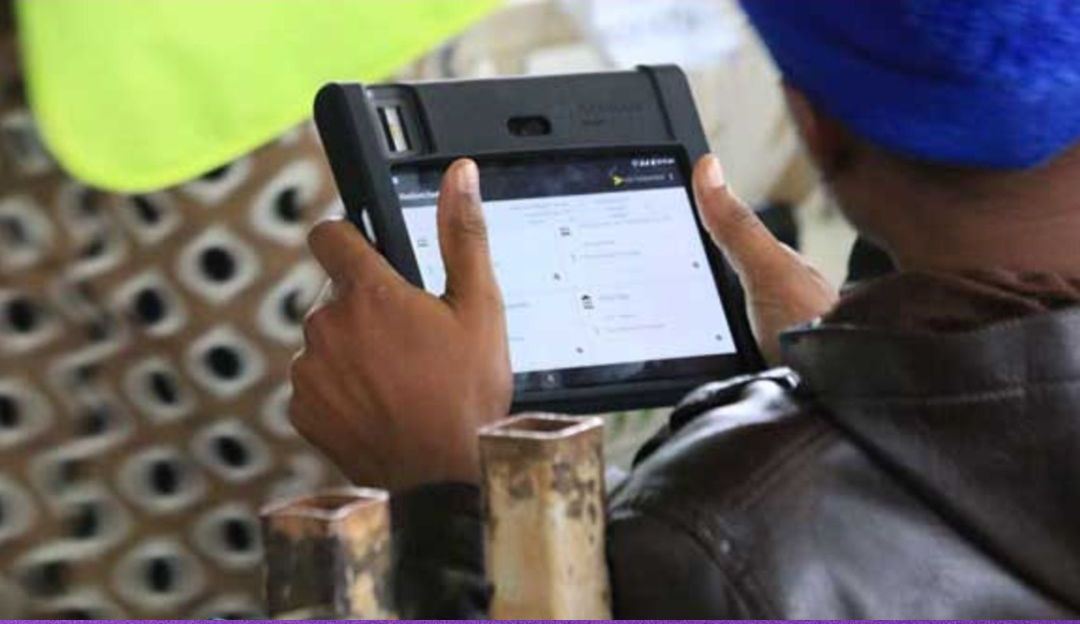By The Weekly Vision Reporter
The Independent Electoral and Boundaries Commission (IEBC) is considering scrapping the use of voters’ cards as a mandatory requirement for voting in the 2027 General Election, a move that could significantly alter Kenya’s electoral process.
To unlock the full article:
Choose one of the options below:
- Ksh 10 – This article only
- Ksh 300 – Monthly subscription
- Ksh 2340 – Yearly subscription (10% off)
The proposal, currently under internal review, would allow registered voters to cast their ballots using only their national identity cards or valid passports. According to IEBC insiders, the rationale behind the shift is rooted in cost-efficiency, security, and the desire to streamline the voter identification process using biometric technology.
“The KIEMS kits have rendered physical voter cards practically redundant. They scan biometric data and cross-check it against the voter register to verify eligibility. Voter’s cards serve little practical purpose during the actual voting process,” a senior IEBC official told the media.
The IEBC argues that producing, replacing, and distributing millions of voters’ cards is a costly affair. By eliminating them, the Commission aims to cut operational costs significantly. Officials note that the use of biometric data through the Kenya Integrated Elections Management System (KIEMS) provides a more secure and reliable method for identifying voters.
Biometric verification, using fingerprints, facial recognition, and potentially iris scans, ensures accuracy, eliminates duplications, and makes voter impersonation more difficult. According to the Commission, these technologies were already in use in the 2013, 2017 and 2022 elections, rendering physical voter cards largely symbolic.
However, the move comes amid rising concerns over the integrity of the electoral roll, particularly in Kenya’s border regions such as North Eastern and the Coast, where historical vetting processes for identity documentation were recently removed by President William Ruto’s administration.
Critics argue that the removal of vetting could pave the way for non-citizens to acquire national IDs, thereby increasing the risk of electoral fraud. Former Speaker of the National Assembly Justin Muturi has warned that such changes may be unconstitutional without a formal amendment process.
“The IEBC is mandated under Article 88 of the Constitution to carry out continuous voter registration. IDs cannot substitute this constitutional process unless the law is amended,” Muturi stated.
The proposal has received support from Raila Odinga, leader of the Orange Democratic Movement (ODM), who has long advocated for reforms in the voter registration process. Odinga argues that the requirement for voter’s cards disenfranchises marginalised groups and complicates access to voting rights for citizens in remote areas.
“Requiring separate voter’s cards only serves to exclude those already struggling with access to basic identity documentation,” Odinga recently said during a televised interview.
However, political figures from the opposition and regional governments have raised concerns about the security implications of removing vetting, particularly in Northern Kenya. Trans Nzoia Governor George Natembeya warned that dropping vetting requirements could increase the threat of infiltration by non-citizens and undermine national security.
“We are not against Northerners receiving IDs. What we are against is the removal of vetting without strengthening alternative safeguards,” Natembeya said.
The IEBC maintains that any changes would remain within the current legal framework. Section 10 of the Elections Act, 2011 allows individuals whose biometric data and names are in the voter register, and who present the same identification document used during registration, to vote.
Electoral experts have voiced both support and caution. Marcus Agenga of the Election Observation Group (ELOG) supports harmonising civil and voter registration processes, noting that it would reduce duplication and costs. However, he warns of potential challenges relating to data privacy and legal frameworks.
“We support automated, harmonised systems, but the country needs strong legal and policy frameworks to protect data and ensure transparency,” said Agenga.
Some leaders have proposed a hybrid model, where both the national ID and voter card are used to provide an additional layer of verification. Machakos Deputy Governor Francis Mwangangi has urged the government to be transparent and thorough in designing any new system.
“The National ID system must be secured, tested, and protected from manipulation before it can fully replace the voter’s card. Otherwise, the electoral process could be compromised,” Mwangangi said.
IEBC Chairman Erastus Ethekon recently announced that the Commission is finalising internal processes and will gazette timelines for continuous voter registration next month. The ongoing debate is expected to shape the trajectory of electoral reforms leading up to the 2027 General Election, widely expected to be one of the most competitive and consequential in Kenya’s history.
As Kenya navigates this critical reform period, stakeholders have called for broad consultation, legal clarity, and an unwavering commitment to the integrity of the vote.
[/full]




